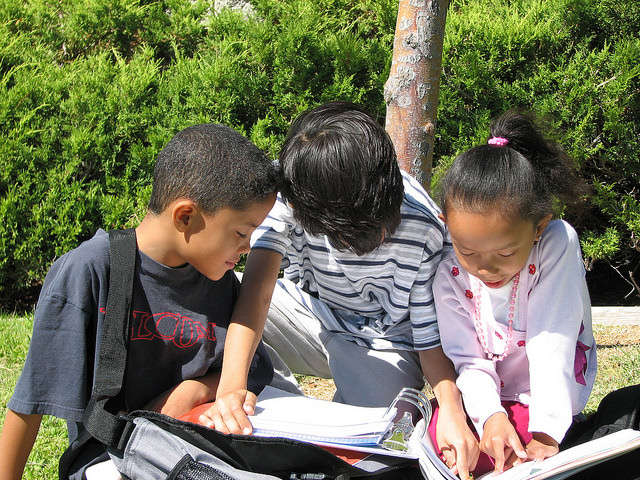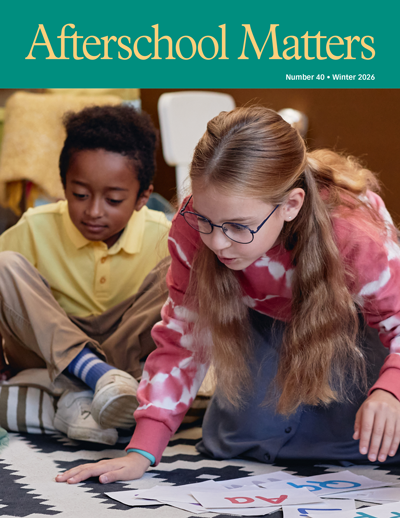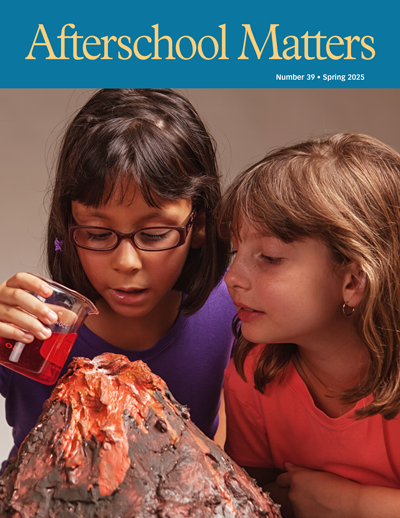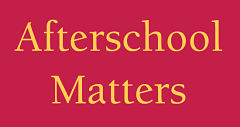How Out-of-School Supports Back-to-School
August 29, 2018
 As children around the U.S. head back to school, we're highlighting a few articles from Afterschool Matters that show the strong connection between out-of-school-time programs and in-school (and in-life) success.
As children around the U.S. head back to school, we're highlighting a few articles from Afterschool Matters that show the strong connection between out-of-school-time programs and in-school (and in-life) success.
In "Before the School Bell Rings: How a Before-School Physical Activity Program Improves Executive Functions," Georgia Hall, Kristen Fay Poston, and Stephanie Harris share the results of their three-year study of the Build Our Kids Success (BOKS) before-school physical activity program in Natick, Mass. public schools. Children in the program, "did experience greater increases in some executive functions than did a comparison group of non-participating children." Those functions that were correlated with BOKS activity in this study, working memory and the ability to shift between tasks, "enable children to hold information, complete tasks, carry out instructions, and transition from one task to another. These clearly are important skills for success in elementary school," the authors say. "Our research on BOKS suggests that participation is associated with enhanced readiness to learn" and "strengthen[s] the argument that physical activity can position children to be more ready and alert for learning experiences."
Margaret Kulkin, in "Math Is Like a Scary Movie? Helping Young People Overcome Math Anxiety," shares her personal experience to show that "Afterschool teachers who tutor students or provide homework help have a unique opportunity to help students overcome the social or emotional barriers that so often block learning. We can embrace a creative and investigative approach to math learning." The point of this creative approach is not just "fun activities," she asserts. "We have to address [students'] anxiety to help them find their inner mathematicians. Once their emotional block is addressed, students are less likely to impose self-limiting beliefs that they don’t 'fit the math mold' or can’t learn math. Using real-world experiences to teach math concepts will help them shift their focus away from anxiety about their performance so they can engage in
learning."
“'I Could See Myself as a Scientist': The Potential of Out-of-School Time Programs to Influence Girls’ Identities in Science," by Kelly Riedinger and Amy Taylor, shows how OST programs in science, technology, engineering, and math (STEM) "can positively influence science identities, particularly for youth from groups historically underserved and underrepresented" in STEM. OST science programs, which often do not formally assess participants or assign grades, "provide opportunities for authentic, meaningful learning that may be more comfortable for some youth than school curricula," and may "allow youth to explore science in ways that support their identities." Such programs may also "give youth access to resources and to scientific practices and tools not typically available in classrooms." The authors use the case study of Coastal Ecology program at the Chincoteague Bay Field Station in Virginia, to show how girls in the program "developed science identities."
Schools and OST programs need to work together, however. In "Creating Holistic Partnerships Between School and Afterschool," Kenneth Anthony and Joseph Morra Anthony, conducted an exploratory study via interviews of school and afterschool staff at three schools in a southern New England city. They found that school and afterschool staff experienced "substantial misalignment that impedes collaboration." They suggest "steps toward dialogue that can created a shared vision of student learning, particularly around informal relationships, principal leadership, fuller dialogue, and shared professional development," asserting, "Conversations between school and afterschool partners need to be founded on trust, not speculation or notions of inability. We owe our students innovative learning experiences that are not limited by the school walls or by lack of coordination among the institutions that seek to educate them.



